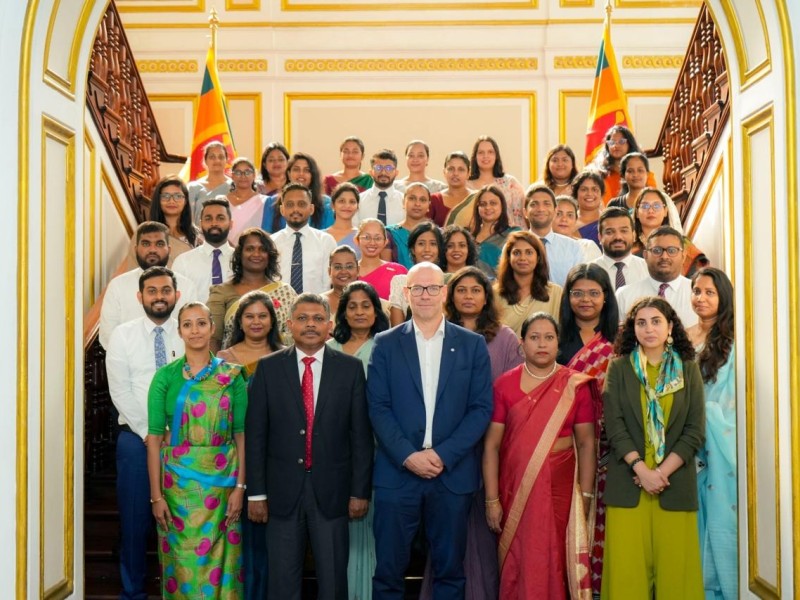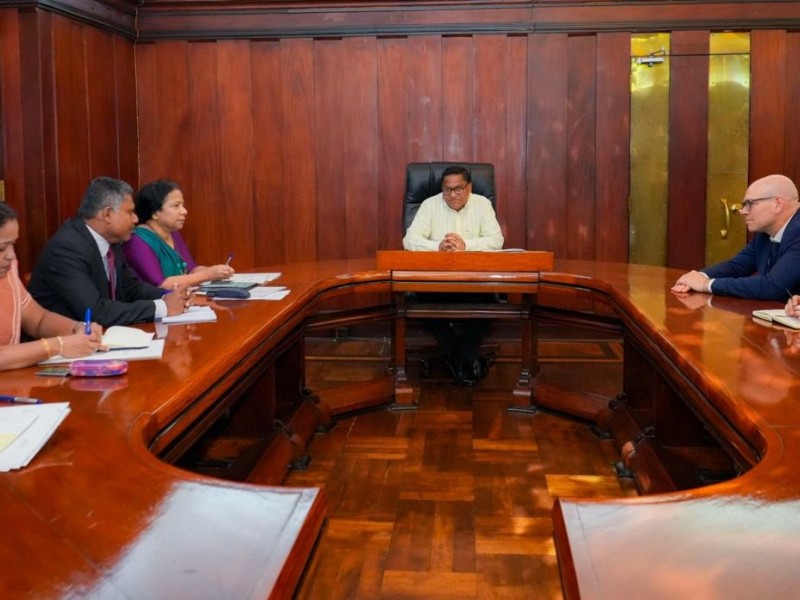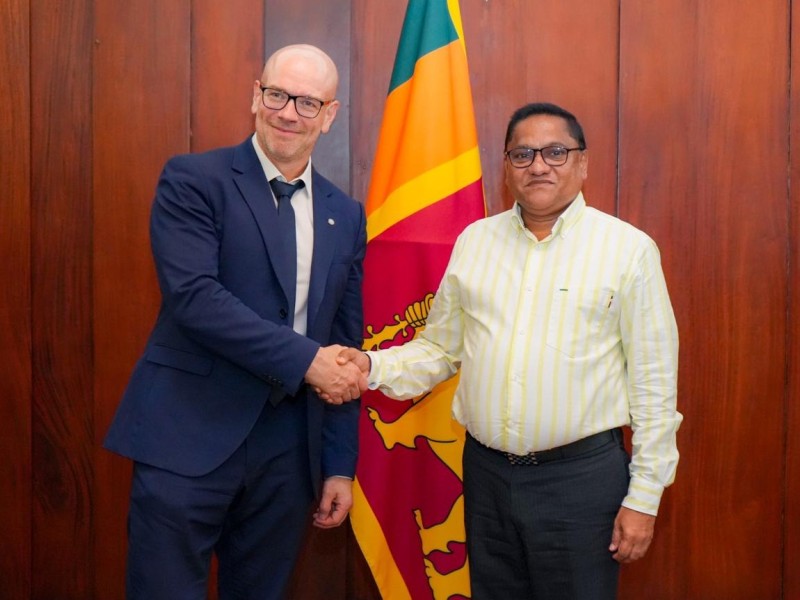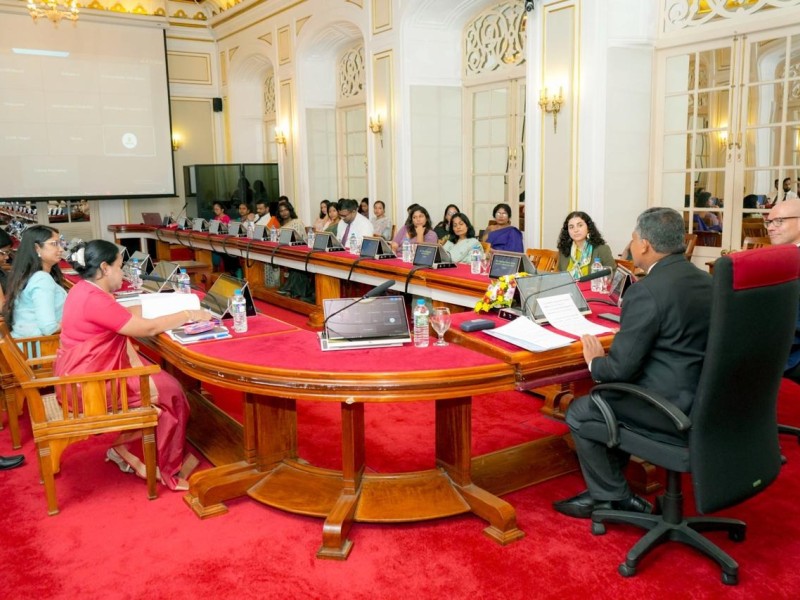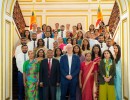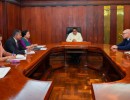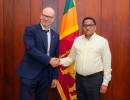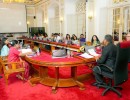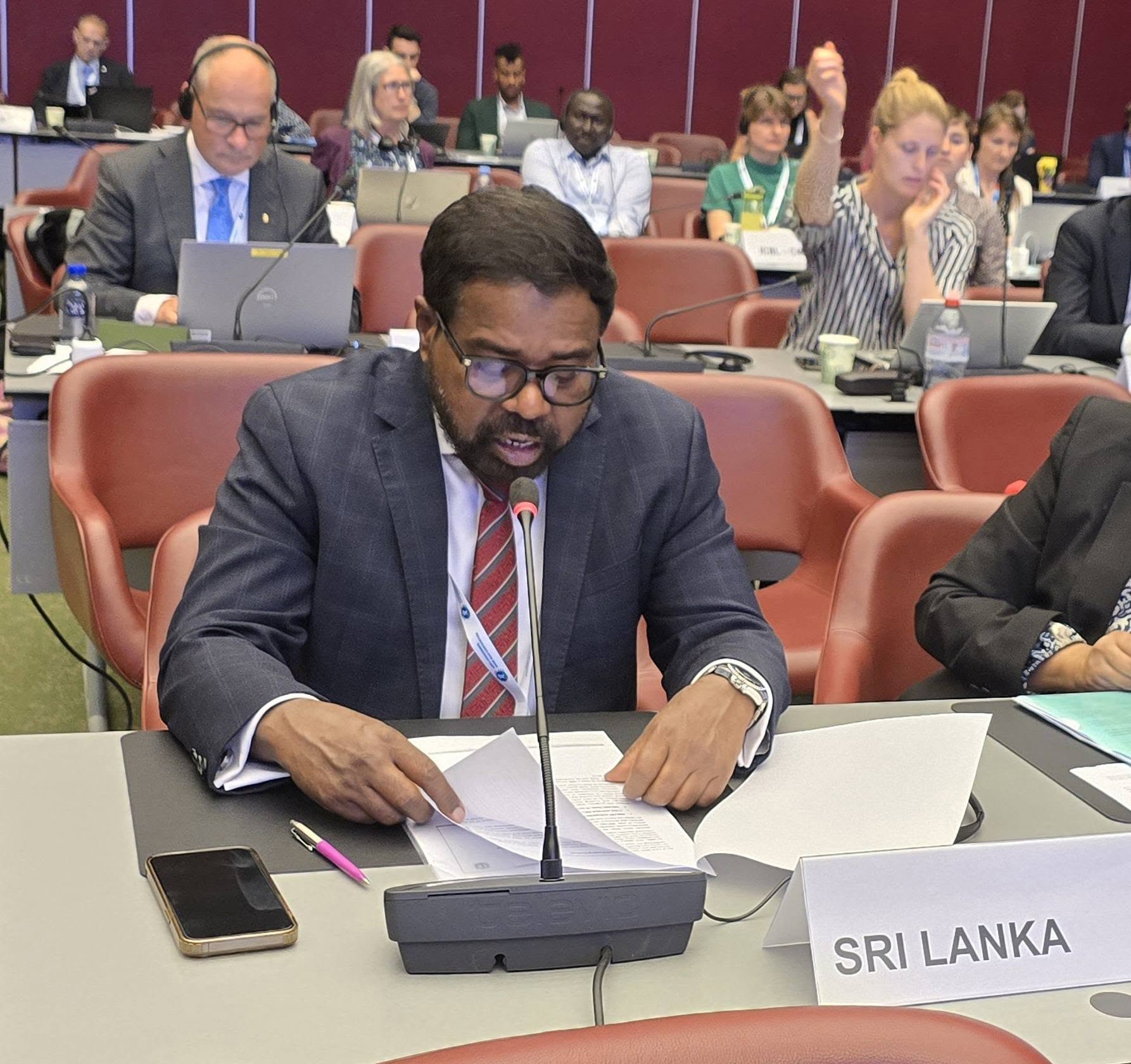
Opening and National Commitment
On behalf of the Government of Sri Lanka and the National Mine Action Centre (NMAC), I am pleased to provide an update on Sri Lanka’s progress and challenges in fulfilling its obligations under Article 5 of the Anti-Personnel Mine Ban Convention (APMBC).
Sri Lanka acceded to the APMBC in June 2018, committing to fulfil its Article 5 obligations by 1 June 2028. To guide this process, the Government launched the National Mine Action Completion Strategy 2023–2027, developed in close consultation with the Geneva International Centre for Humanitarian Demining (GICHD) and all national and international stakeholders. The strategy reflects international good practices and is designed to steer Sri Lanka toward timely, transparent, and sustainable completion.
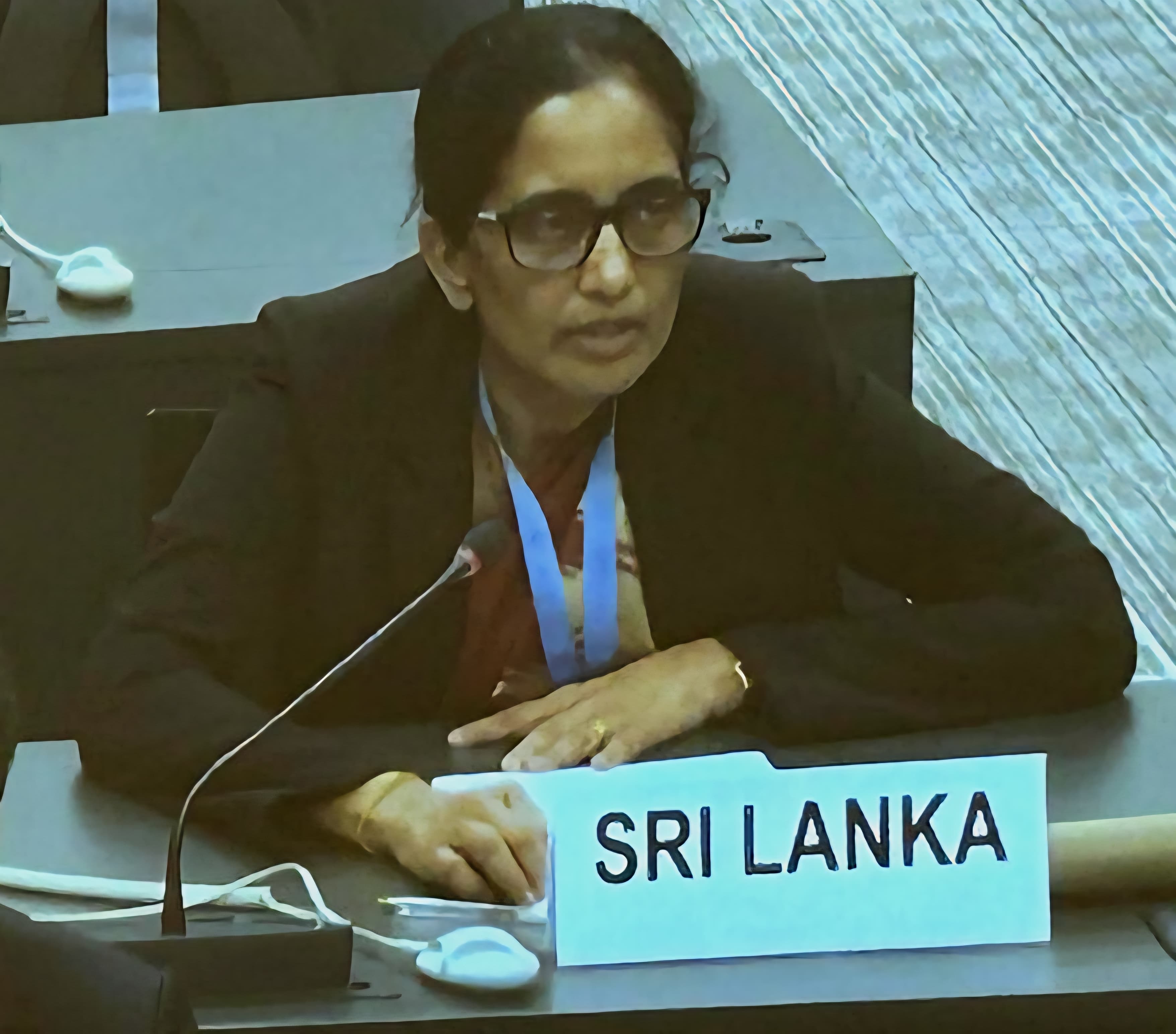
Mr. Coordinator,
I would also like to join others to appreciate the manner that you guide the discussion in this Subsidiary Body.
Sri Lanka reaffirms its unwavering commitment to nuclear disarmament and the establishment of robust legally binding security assurances to protect non-nuclear-weapon states from nuclear threats which is long overdue and has been in the CD agenda since its inception in 1979. The Final Document of Special Session on Disarmament (SSOD-I) in 1978 and subsequent review Conferences of the NPT had also outlined the need for such assurances.
While recognizing that the nuclear-weapon States have provided certain security assurances to non-nuclear-weapon States through UN Security Council resolutions, unilateral declarations and various pledges as well as taking efforts in establishing nuclear-weapon-free zones, it is noted that such voluntary commitments are non-binding and attach conditions. Nuclear-weapon-free zones also do not cover all regions. Today, we see the real challenges in the establishment of a nuclear-weapon-free zone in the Middle East.
Therefore, the only effective guarantee against nuclear threats is the total elimination of nuclear weapons. Pending this, Sri Lanka urges the Conference on Disarmament (CD) to start substantive work on concluding an international legally-binding instrument providing unconditional guarantees to non-nuclear-weapon States.
Towards this direction, the overlapping elements and shared principles of the existing unilateral declarations, Security Council resolutions, and protocols to establish Nuclear Weapons Free Zones could be perceived as a starting point for negotiations. The unresolved questions such as;
i. which States should give the assurance: whether the States Parties to the NPT or all nuclear armed States and;
ii. which States would be eligible to receive the assurance
need to be resolved through inclusive negotiation.
Sri Lanka emphasizes that effective international arrangements for negative security assurances must address both immediate security concerns as well as long-term disarmament goals. It is also essential to strengthen the IAEA safeguards under Article III of the NPT to ensure compliance, enhance transparency measures, real-time monitoring and to ensure peaceful use of nuclear energy.
Sri Lanka was one of the earliest supporters of Nuclear Weapon Free Zones. At the 1964 Non-Aligned Summit in Cairo, the leading role played by the then Sri Lankan Prime Minister Sirimavo Bandaranaike led the summit to issue a declaration in favor of global “denuclearized zones”. Sri Lanka advocated for extending Nuclear Weapon Free Zones to cover not only land masses but also the oceans, reflecting its forward-thinking approach to nuclear disarmament. Also allow me to recall that in 1971, Sri Lanka made an indelible mark on the world stage by being instrumental in the passage of a historic resolution at the United Nations to declare the Indian Ocean region and its airspace as a Zone of Peace. As the Chair of the Indian Ocean Rim Association (IORA), Sri Lanka continues to foster its enduring commitment to promoting peace, unity & stability in the region. Our longstanding approach to non-alignment and advocacy for complete elimination of nuclear weapons, has positioned Sri Lanka as a credible partner in support of Nuclear Weapon Free Zones.
As the sole multilateral disarmament negotiating forum, the CD must act decisively to fulfill its mandate and must prioritize drafting a legally binding agreement on security assurances for non-nuclear states without further delay and this could be the lowest hanging fruit to break the impasse. Therefore, we extend our support to the Subsidiary Body 4 to expedite discussions on concrete measures to negotiate an unconditional, legally binding instrument for negative security assurances, including verification mechanisms for compliance.
Thank you
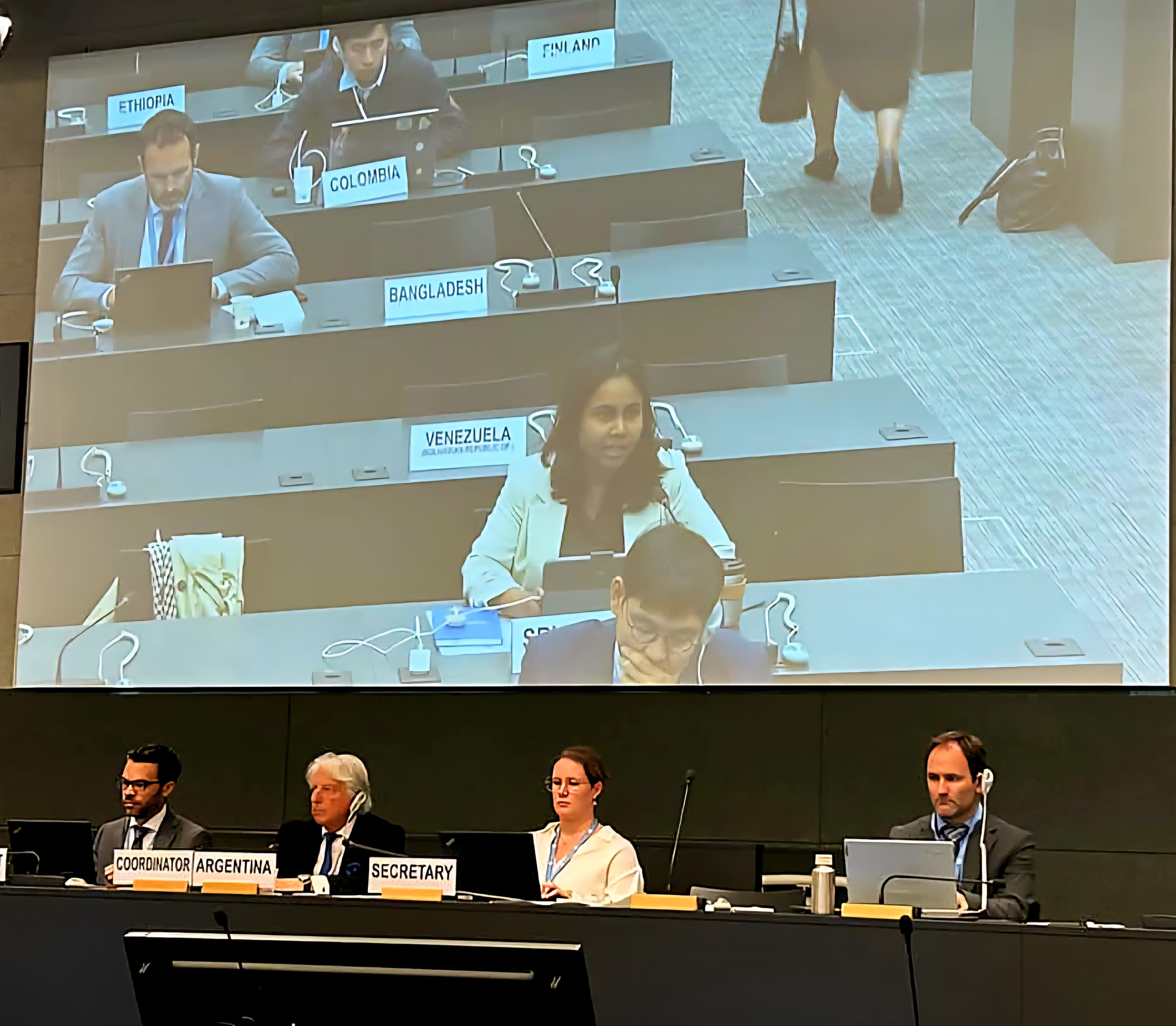
Mr. Coordinator,
I would also like to join others to appreciate the manner that you guide the discussion in this Subsidiary Body.
Sri Lanka wishes to underscore that discussing the key terms and definitions and their limitations should not prejudge or hinder any future negotiations of a comprehensive legally binding instrument in PAROS.
The existing normative and legal framework governing outer space security has not evolved at the same pace to address the rapidly increasing threats posed by technical advancements and their consequences.
Therefore, it is essential that the evolution of space law should align with current and future realities and emerging threats in the outer space domain and must consider the gaps in the existing legal regime in all aspects.
Sri Lanka has been engaging for decades in advocating for a legally binding instrument in PAROS. UNGA resolution 79/19 titled ‘prevention of an arms race in outer space’ which is presented by Sri Lanka together with Egypt annually emphasizes “the necessity of further measures with appropriate and effective provisions for verification to prevent an arms race in outer space” while referring to the important work carried out so far in multilateral fora on outer space disarmament. We understand that the current challenges and complexities of definition on weapon in outer space and key concepts and verification should be addressed in a very comprehensive and inclusive manner and would not block the ultimate goals of prevention of arms race in outer space.
As emphasized by the Outer Space Treaty, space is to be used for peaceful purposes, and therefore, legally binding provisions prohibiting all types of weapons in outer space considering the current and future potentials, should be sufficiently broad enough to cover any type of weapons including but not limited to ground-based anti-satellite (ASAT) systems that target space assets, dual- use technologies such as satellites with civilian and military applications, any space systems with civilian applications which is weaponizable, Autonomous Weapons Systems (AWS) integrating Artificial Intelligence (AI), and cyber weapons targeting space assets’ ground control stations or satellite command systems etc.
As entrusted in the Outer Space Treaty ‘exploration and use of outer space shall be carried out for the benefit and in the interest of all countries and shall be the province of all mankind’.
It is also essential to give due consideration to the voice of developing countries that rely on peaceful uses of outer space and space-based assets, particularly satellite technology for communication, transport, disaster management, and climate impact monitoring and resilience as destructive impact on such systems could paralyze civilian life. Regional consultations and dialogues particularly among the non-spacefaring states would be essential to ensure inclusivity when discussing these aspects in future.
Sri Lanka also takes this opportunity to underscore that weaponizing of outer space and space debris created by outer space activities would disproportionately affect all states.
It is the responsibility of all States to ensure that outer space remains a shared heritage of humankind, free from conflict and accessible to all nations for peaceful purposes.
Thank you

Mr. Coordinator,
Sri Lanka reiterates its steadfast commitment to complete elimination of nuclear weapons and preventing nuclear war through legally binding instruments. As a nation that championed the 1978 UN General Assembly Special Session on Disarmament (SSOD1), Sri Lanka emphasizes the urgency of translating technical and institutional discussions into actionable, legally binding commitments.
As we all know, the current realities of multilateralism have proven the difficulties of negotiating or agreeing on a new legally binding instrument to address the asymmetries of the existing treaties for nuclear disarmament and non-proliferation. Therefore, identifying synergies and complementarities of existing treaties and mechanisms, including the NPT, the TPNW, the CTBT, and the relevant UNGA resolution and other legal provisions and exploring their full implementation to address the new threats of nuclear weapons and arsenals would be an alternative in addressing the rapidly escalating threats. The Universalization of the NPT, TPNW and the CTBT remains an urgent priority in order to bring all nuclear weapon states and non-nuclear weapon states into an inclusive dialogue on nuclear disarmament.
Sri Lanka believes that any new legally binding instrument must address the gaps in the existing legal regimes and enforce time bound, pragmatic, verifiable and irreversible steps to eliminate nuclear weapons.
As the President of the 1995 NPT Review and Extension Conference resulted in the indefinite extension of the Nuclear Non-Proliferation Treaty (NPT), which remains a significant and historic milestone of nuclear disarmament even today, Sri Lanka regrets the longstanding stalemate in international efforts to move forward in addressing the issue of nuclear weapons.
Under the Presidency of Sri Lanka, the 1995 NPT Review Conference also strengthened the review process of the NPT for the operation of the Treaty with a view to ‘assuring that the purposes of the Preamble and the provisions of the Treaty are being realized’. Today, all we need to do is collectively envisaging to address persistent challenges and build on lessons learnt from the previous review cycle, which ended without consensus, in order to avoid wasting the opportunities at the forthcoming Review Conference in 2026.
Let me also recall the opinion of Justice C.J. Weeramantry, a renowned Sri Lankan judge and a former Vice President of the International Court of Justice (ICJ) on the Legality of the Threat or Use of Nuclear Weapons in 1996.
Quote
“Use or threat of use of nuclear weapons is illegal in any circumstances whatsoever. It violates the fundamental principles of international law, and represents the very negation of the humanitarian concerns which underlie the structure of humanitarian law.”
Unquote
In his opinion, Justice Weeramantry further states that “In the field of nuclear disarmament, it also reminds all nations of their obligation to bring these negotiations to their conclusion in all their aspects, thereby ending the continuance of this threat to the integrity of international law”
Looking ahead, it should also be underlined that political will remains a challenge in achieving technical and institutional capabilities for nuclear disarmament.
In conclusion, Sri Lanka wishes to convey our appreciation to Switzerland for its leadership in this subsidiary body and for conducting informal consultations on diversified themes.
Thank you
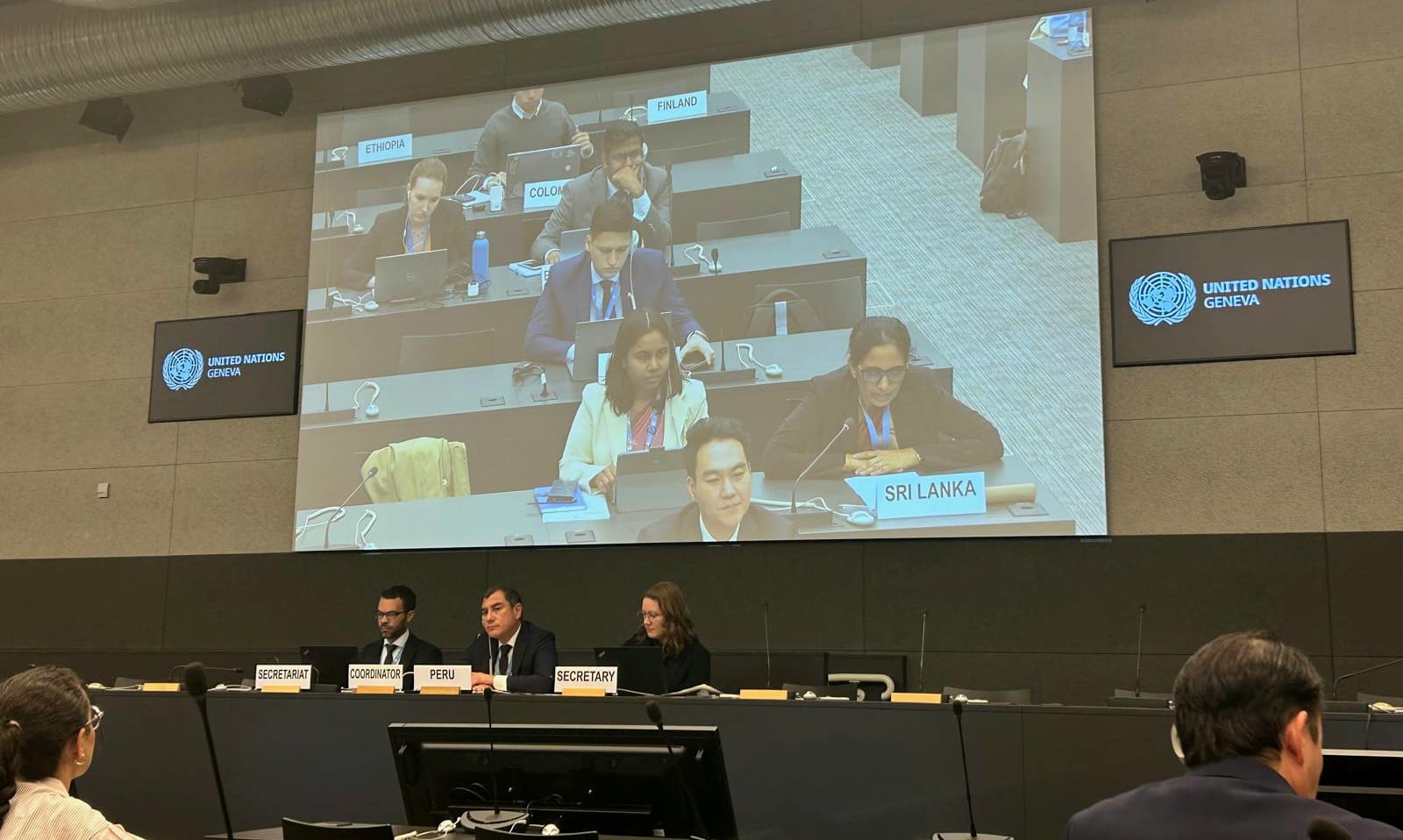
Mr. Coordinator,
Sri Lanka appreciates your leadership in guiding the informal consultations in this Subsidiary Body in a manner where all States could profoundly discuss the related issues on the cessation of the nuclear arms race and nuclear disarmament.
As the recent global security challenges continue to highlight the risk of use or threat to use nuclear weapons, establishment of a robust legal framework through multilateral discussion remains our most promising pathway toward complete nuclear disarmament.
The Conference on Disarmament, as the sole multilateral negotiating forum available in this regard, bears a special responsibility in advancing the legal framework for nuclear disarmament. While we acknowledge the challenges faced by this body in recent decades, Sri Lanka remains convinced of its indispensable role and potential.
Sri Lanka views various disarmament treaties not as competing instruments but as complementary frameworks that ultimately strengthen the legal architecture for nuclear disarmament.
Among them, the provision for prohibition of nuclear weapons established by the TPNW represents a crucial step toward their elimination. By explicitly prohibiting States Parties from developing, testing, producing, manufacturing, acquiring, possessing, or stockpiling nuclear weapons, the Treaty on the Prohibition of Nuclear Weapons (TPNW) establishes comprehensive legal barriers against nuclear weapons. Further, its prohibitions against transferring, receiving, using, or threatening to use nuclear weapons further strengthen the international norm against nuclear weapons. The NPT, CTBT, and other related instruments each address specific aspects of the nuclear disarmament process, from testing to manufacturing to use, creating a comprehensive framework towards the ultimate goal of their total elimination.
When discussing the legal framework to advance the process of nuclear disarmament, Sri Lanka believes that the complementarity between existing legal instruments must be recognized and leveraged more effectively.
While noting the growing nuclear risks which demands urgent attention and action, Sri Lanka wishes to emphasize several key points:
1. Universalization of Existing Instruments
While recalling its recent accession to the Treaty on Prohibition of Nuclear Weapons (TPNW), and ratification of the Comprehensive Nuclear Test Ban Treaty (CTBT), Sri Lanka calls for the promotion of universal adherence to existing disarmament treaties, including the TPNW and CTBT. Sri Lanka has consistently supported the UN General Assembly resolutions calling upon ‘all States that have not yet done so to sign, ratify, accept, approve or accede to the TPNW at the earliest possible date’ 1 . Sri Lanka also wishes to encourage all States, particularly those possessing nuclear weapons or those under nuclear security arrangements, to engage constructively with these Treaties and their humanitarian principles and objectives.
2. Humanitarian Consequences
We all need to be conscious that the use of any nuclear weapon is not merely a security issue but bears catastrophic humanitarian consequences. Thus, as responsible members of the international community we all need to ensure the world will never experience such devastative impact. It remains as our ultimate obligation for future generations.
3. Verification mechanism
Nuclear disarmament verification remains essential to building confidence and transparency in disarmament processes. Sri Lanka supports strengthening existing verification regimes and developing new technologies and approaches that can support effective monitoring of compliance with disarmament obligations.
4. Strengthening the Conference on Disarmament
We believe that breaking the institutional deadlock in the CD requires creative approaches and flexibility of all stakeholders. This institutional deadlock diminishes the effectiveness of the CD in addressing disarmament issues over the decades. The recent decision allowing Subsidiary Bodies to continue their work into 2025 offers a valuable opportunity to overcome these challenges and Sri Lanka stands ready to engage constructively in efforts to develop a balanced and comprehensive program of work of the CD that addresses the priorities of all member states and advancing the legal framework necessary for achieving and maintaining a world free of nuclear weapons.
In conclusion, Sri Lanka calls upon all States to renew their commitment to multilateralism and to the development of legal frameworks that will facilitate verifiable and irreversible nuclear disarmament.
Thank you
[1] UNGA Resolution 79/38 - Treaty on the Prohibition of Nuclear Weapons
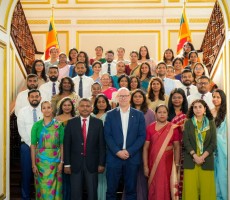
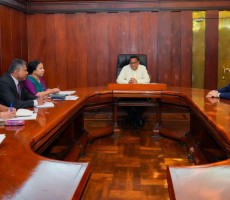
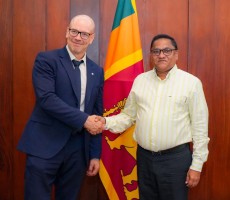
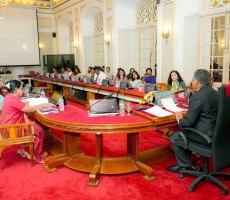
The Ministry of Foreign Affairs, Foreign Employment and Tourism in collaboration with the United Nations Institute for Disarmament Research (UNIDIR) successfully conducted a two day Seminar on Disarmament for Sri Lanka Foreign Service Officers on 25 and 26 April, 2025 at the Ministry. Over 40 officers based in Colombo attended the workshop physically while over 60 officers attached to Sri Lanka Missions abroad followed the Seminar virtually.
- Sri Lanka co-hosted a side event at the Global Disability Summit in Berlin, Germany
- Statement by Hon. MFA at the High Level Segment of the Conference on Disarmament, 25 February 2025
- Intervention by Sri Lanka at the Fifth Meeting of the Working Group on the Strengthening of the Biological Weapons Convention (BWC), 02-13 December 2024, in Geneva - Science & Technology Review Mechanism (10 December 2024)

